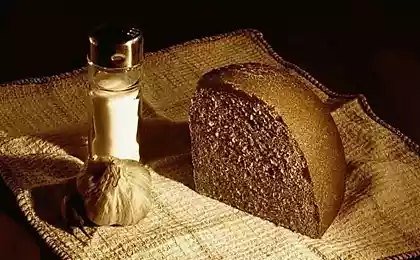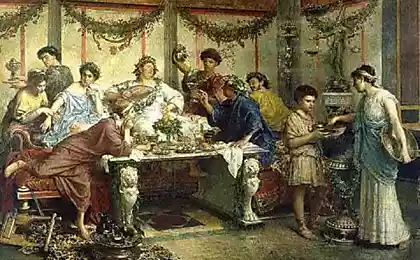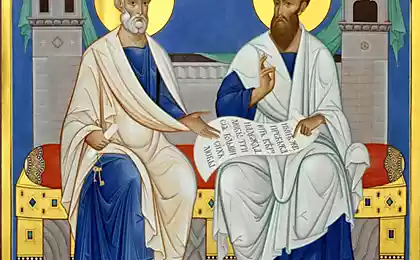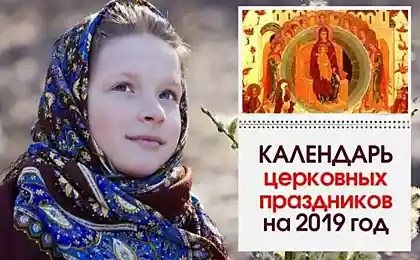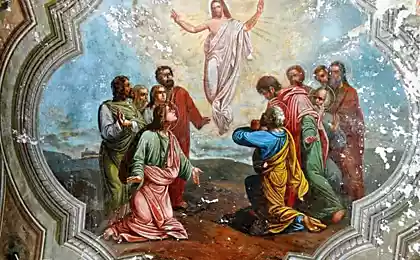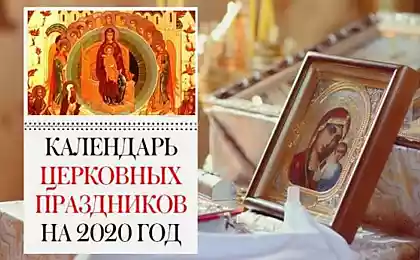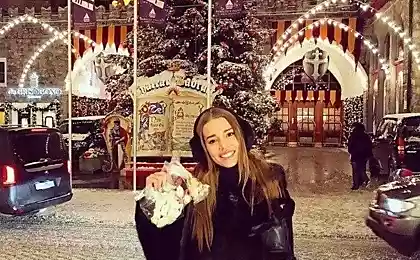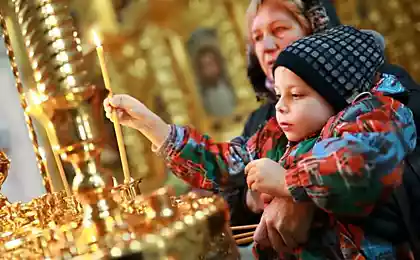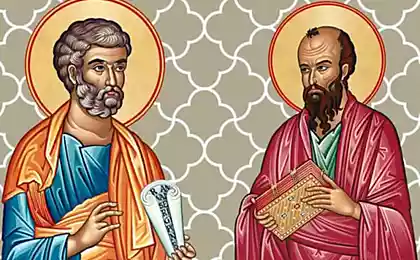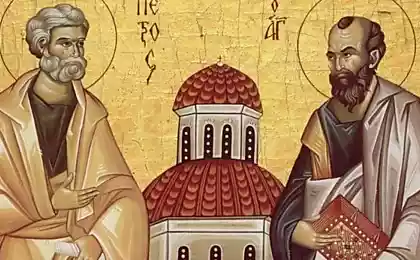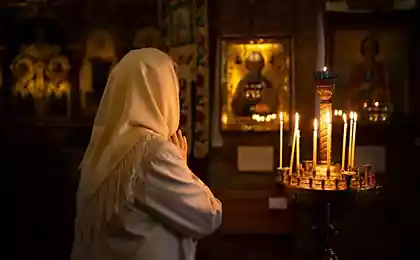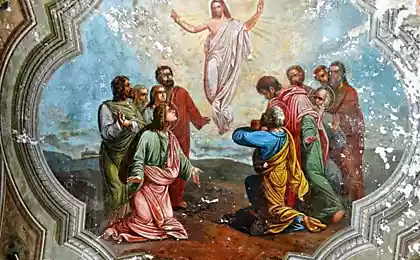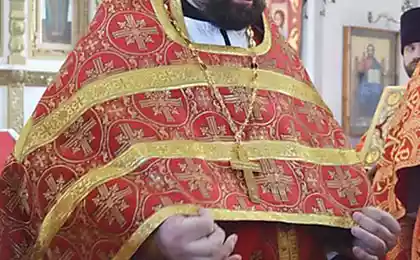144
How to Spend a Weekend in Goodness
On January 7, all Orthodox people celebrate the Great Christmas. It is preceded by Christmas Eve or Holy Evening (January 6), which is accompanied by many traditions and ceremonies. Do you want to celebrate Christmas right? Then this article is specifically for you!

Holy evening Holy evening is the last day of Christmas fasting, the main purpose of which is to be spiritually purified in order to prepare for the Great holiday. Dinner January 6 should be modest, lean and non-alcoholic.
Many housewives, following ancient legends, prepare 12 lean dishes, among which there are sure to be starving. Before you go to church for service, you should break a kutya and try a little each of the 11 lean dishes.
It should be remembered that “a full belly to prayer is deaf.” During the meal, you can not talk much, as well as swear and gossip. Lenten dishes should be washed down with Uzvar, not water.
What not to do on holiday: Christmas bans
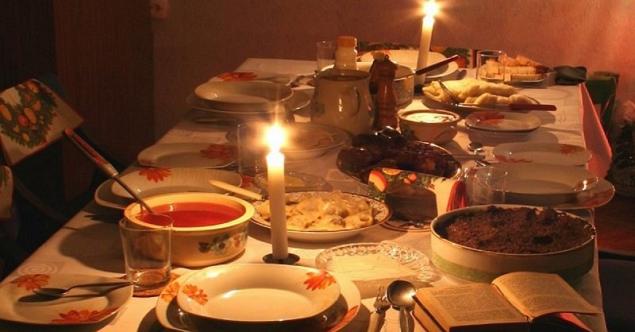
Those who are going to take Communion at the night Liturgy should eat their last meal at least 6 hours before Communion, that is, from about 6 p.m. The Vespers service connects with the Liturgy and is served in the morning. Therefore, we fast until the moment when a candle is carried out in the center of the temple and in front of it the troparion of the Nativity of Christ is sung.
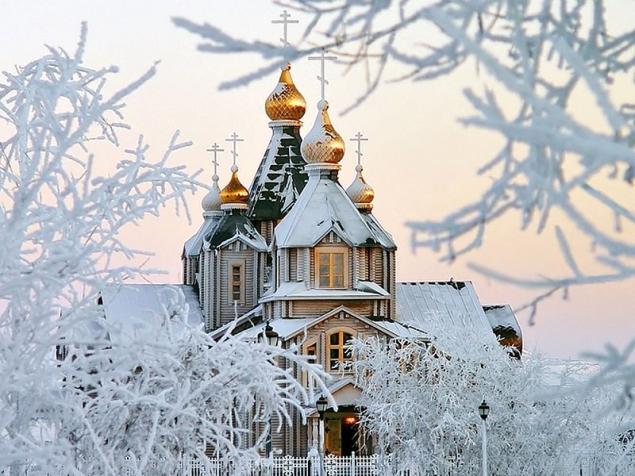
Attending a night or morning service is a real blessing. But you need to look to your own strength: if you have health and desire, you should definitely share the universal joy in the temple. Night service contributes to a deeper perception of the Great holiday.

After the end of the Liturgy, the festive feast begins. You can celebrate Christmas first in the temple, and then arrange a family celebration. Everyone decides for themselves how to celebrate this holiday.

Most people prefer to rest after service. In the evening, to arrange a Christmas dinner, it is customary to add a variety of delicacies to a hungry pot. This is how a generous kutya is prepared, which is carried by godchildren to cronies. Christmas dinner often consists of hearty meat dishes, dry wine, kutya and uzvar.
Don’t forget to share this useful information with your friends – they will be grateful. Delicious kutya, warm uzvar and good mood!

Holy evening Holy evening is the last day of Christmas fasting, the main purpose of which is to be spiritually purified in order to prepare for the Great holiday. Dinner January 6 should be modest, lean and non-alcoholic.
Many housewives, following ancient legends, prepare 12 lean dishes, among which there are sure to be starving. Before you go to church for service, you should break a kutya and try a little each of the 11 lean dishes.
It should be remembered that “a full belly to prayer is deaf.” During the meal, you can not talk much, as well as swear and gossip. Lenten dishes should be washed down with Uzvar, not water.
What not to do on holiday: Christmas bans
- Do not wear old and black clothes at Christmas: it is a great holiday, even priests dress in festive races these days. Out of respect for the celebration, you need to dress up. People consider this a good sign for next year.
- As in other bright big church holidays, you can not do hard work on January 7, women - sew, clean, cook. We should rest. Don't be too big if you have to go to work that day, like on duty. The Church will not consider it a sin.
Then your work will be for the glory of God. - In no case do not guess on these holidays and do not engage in other spiritual nonsense.
- Keep peace in your heart! In no case should you swear, swear, clarify relations these days. Especially at the festive table, it is a great sin and disrespect for the holiday.
- It is very important to forgive all your enemies and not to keep evil thoughts to yourself during the celebration of the Holy Evening and Christmas.
- On January 6, on Holy Evening, carnal pleasures are forbidden. You can also not drink alcohol at the table.

Those who are going to take Communion at the night Liturgy should eat their last meal at least 6 hours before Communion, that is, from about 6 p.m. The Vespers service connects with the Liturgy and is served in the morning. Therefore, we fast until the moment when a candle is carried out in the center of the temple and in front of it the troparion of the Nativity of Christ is sung.

Attending a night or morning service is a real blessing. But you need to look to your own strength: if you have health and desire, you should definitely share the universal joy in the temple. Night service contributes to a deeper perception of the Great holiday.

After the end of the Liturgy, the festive feast begins. You can celebrate Christmas first in the temple, and then arrange a family celebration. Everyone decides for themselves how to celebrate this holiday.

Most people prefer to rest after service. In the evening, to arrange a Christmas dinner, it is customary to add a variety of delicacies to a hungry pot. This is how a generous kutya is prepared, which is carried by godchildren to cronies. Christmas dinner often consists of hearty meat dishes, dry wine, kutya and uzvar.
Don’t forget to share this useful information with your friends – they will be grateful. Delicious kutya, warm uzvar and good mood!



